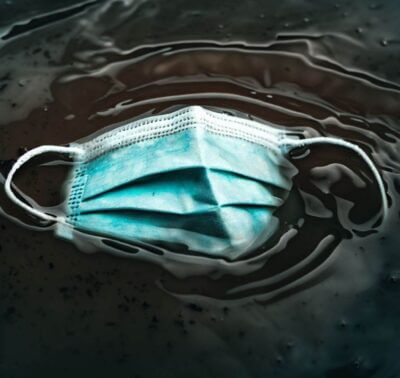The “Non-Presumptive” Conditions Resulting from the Camp Lejeune Contamination
 Camp Lejeune is a Marine Corps base located in North Carolina that was and is home to thousands of service members and their families from the 1950s to today. Beginning in 1953, the drinking water supply at the base was contaminated with various hazardous chemicals, such as trichloroethylene (TCE), perchloroethylene (PCE), benzene, and vinyl chloride. These chemicals are known or suspected to cause various health problems, including cancer, neurological disorders, and blood diseases.
Camp Lejeune is a Marine Corps base located in North Carolina that was and is home to thousands of service members and their families from the 1950s to today. Beginning in 1953, the drinking water supply at the base was contaminated with various hazardous chemicals, such as trichloroethylene (TCE), perchloroethylene (PCE), benzene, and vinyl chloride. These chemicals are known or suspected to cause various health problems, including cancer, neurological disorders, and blood diseases.
In 2017, the Department of Veterans Affairs (VA) established a “presumption of service connection” for eight diseases associated with exposure to the contaminated water at Camp Lejeune. This means that veterans, their families, and anyone who worked or lived at Camp Lejeune for at least 30 days (cumulatively) between August 1, 1953, and December 31, 1987, may be eligible for disability compensation and health care benefits, without having to prove that their condition was caused by their service.
However, not all diseases or conditions that may be related to the Camp Lejeune contamination are included in the VA’s list of presumptive conditions. There may be other illnesses or health problems that are not currently recognized by the VA or the Agency for Toxic Substances and Disease Registry (ATSDR) as having a link to the chemicals in the water supply at the base during the 34+ years of contamination. These are called non-presumptive conditions.
Some examples of the “non-presumptive conditions” that may be associated with the Camp Lejeune contamination are:
- Birth defects: Problems that happen when a baby is developing in the mother’s womb. They can affect how the baby looks, acts, or learns. Some birth defects can be seen at birth, while others are found later in life.
- Brain cancer/CNS cancers: Cancers that start in the brain or the central nervous system (CNS), which includes the spinal cord and nerves. They can cause headaches, seizures, vision problems, and other symptoms.
- Breast cancer: A type of cancer that starts in the breast tissue.
- Cardiac Defects: Problems that affect how the heart is formed or how it works. These can cause trouble with pumping blood, getting enough oxygen, or keeping a regular heartbeat. Some cardiac defects are present at birth, while others develop later in life.
- Cervical cancer: Cancer that starts in the cervix, which is the lower part of the uterus (womb) that connects to the vagina. It can cause abnormal bleeding, pain, or discharge.
- Choanal atresia: A birth defect that blocks the back of the nose. It can make it hard for a baby to breathe through the nose, especially when feeding or sleeping.
 Esophageal cancer: A type of cancer that starts in the esophagus, which is the tube that connects the mouth to the stomach.
Esophageal cancer: A type of cancer that starts in the esophagus, which is the tube that connects the mouth to the stomach.- Eye defects: Problems that affect how the eyes look or work. They can cause vision loss, crossed eyes, or other eye problems.
- Fatty liver disease: A condition caused by having too much fat build-up in the liver, which can impair its function and lead to inflammation, scarring, and cirrhosis.
- Infertility: A condition caused by the inability to conceive or carry a pregnancy to term.
- Lung cancer: A type of cancer that starts in the lungs.
- Miscarriage: A condition caused by the loss of a pregnancy before 20 weeks of gestation.
- Neurobehavioral effects: A range of effects on the brain and nervous system, such as memory loss, cognitive impairment, depression, anxiety, and post-traumatic stress disorder.
- Neurological/Neurobehavioral effects: Problems that affect how the brain and nervous system work. They can cause changes in memory, thinking, mood, or behavior.
- Ovarian cancer: Cancer that starts in the ovaries, which are the female organs that produce eggs and hormones. It can cause bloating, pain, or irregular periods.
- Pancreatic cancer: Cancer that starts in the pancreas, which is an organ that helps with digestion and blood sugar control. This cancer can cause jaundice (yellowing of the skin and eyes), weight loss, and diabetes.
- Prostate cancer: Cancer that starts in the prostate, which is a male organ that makes fluid for semen. This cancer can cause trouble urinating, blood in urine or semen, or erectile dysfunction.
- Rectal cancer: Cancer that starts in the rectum, which is the last part of the large intestine (colon) before the anus. This cancer can cause bleeding, pain, or changes in bowel habits.
- Renal toxicity: A condition caused by damage to the kidneys from exposure to harmful substances, such as chemicals, drugs, or toxins, and can impair their function and lead to acute or chronic kidney disease.
- Scleroderma: A rare autoimmune disease that causes hardening and tightening of the skin and connective tissues.
- Soft tissue cancer: Cancer that starts in the soft tissues of the body, such as muscles, fat, blood vessels, or nerves. This cancer can cause lumps, pain, or swelling.
If you have a non-presumptive condition and you meet the service requirements for Camp Lejeune, you may still be  able to file a claim for disability compensation with the VA. However, you will need to provide additional evidence to show that your condition was caused by your exposure to the contaminated water at Camp Lejeune. This may include medical opinions from experts, scientific studies, or other relevant information. You may also be eligible to enroll in VA health care and receive free treatment for any of the other covered health conditions related to Camp Lejeune exposure.
able to file a claim for disability compensation with the VA. However, you will need to provide additional evidence to show that your condition was caused by your exposure to the contaminated water at Camp Lejeune. This may include medical opinions from experts, scientific studies, or other relevant information. You may also be eligible to enroll in VA health care and receive free treatment for any of the other covered health conditions related to Camp Lejeune exposure.
You may be able to seek compensation for your non-presumptive condition. In 2022, the President signed into law the Honoring our PACT Act , which includes the Camp Lejeune Justice Act of 2022 (“CLJA”). This law allows new lawsuits for individuals exposed to contaminated water at Camp Lejeune. You may be able to file a lawsuit against the federal government and seek relief from the court for your non-presumptive condition.
Whether you decide to pursue a claim with the VA and/or a lawsuit under the CLJA is entirely your decision and will not influence your eligibility for VA benefits or health care based on your exposure. However, you should consult with a qualified lawyer or representative. You should also contact the VA at 1-800-827-1000 or visit their website at https://www.va.gov/disability/eligibility/hazardous-materials-exposure/camp-lejeune-water-contamination/, if you have any questions or concerns about your health or benefits related to Camp Lejeune exposure. You also can learn about the history and health effects of the Camp Lejeune contamination from the ATSDR at: https://www.atsdr.cdc.gov/sites/lejeune/index.html.
Camp Lejeune is one of the largest and most active Marine Corps bases in the country. It also has been the site of one of the worst environmental disasters in U.S. military history. The VA’s presumption of service connection for Camp Lejeune is a recognition of the sacrifice and suffering of those who served at the base and developed serious health problems as a result. However, there may be others who are still suffering from non-presumptive conditions, and these individuals still deserve justice and compensation for their exposure.
At the Herd Law Firm, PLLC, we support every man, woman, and child exposed to contaminants at Camp Lejeune, and believe you deserve quality, attentive legal representation. The VFW has endorsed our firm and a few others to represent veterans and their families in pursuing Camp Lejeune cases on their behalf. We are proud to be able to aid our veterans and their families in seeking restitution for their injuries.
Please let us know if we can help you or others who were injured from exposure while at Camp Lejeune.
Image Source: U.S. Marine Corps, ATSDR.com
6/30/2023







